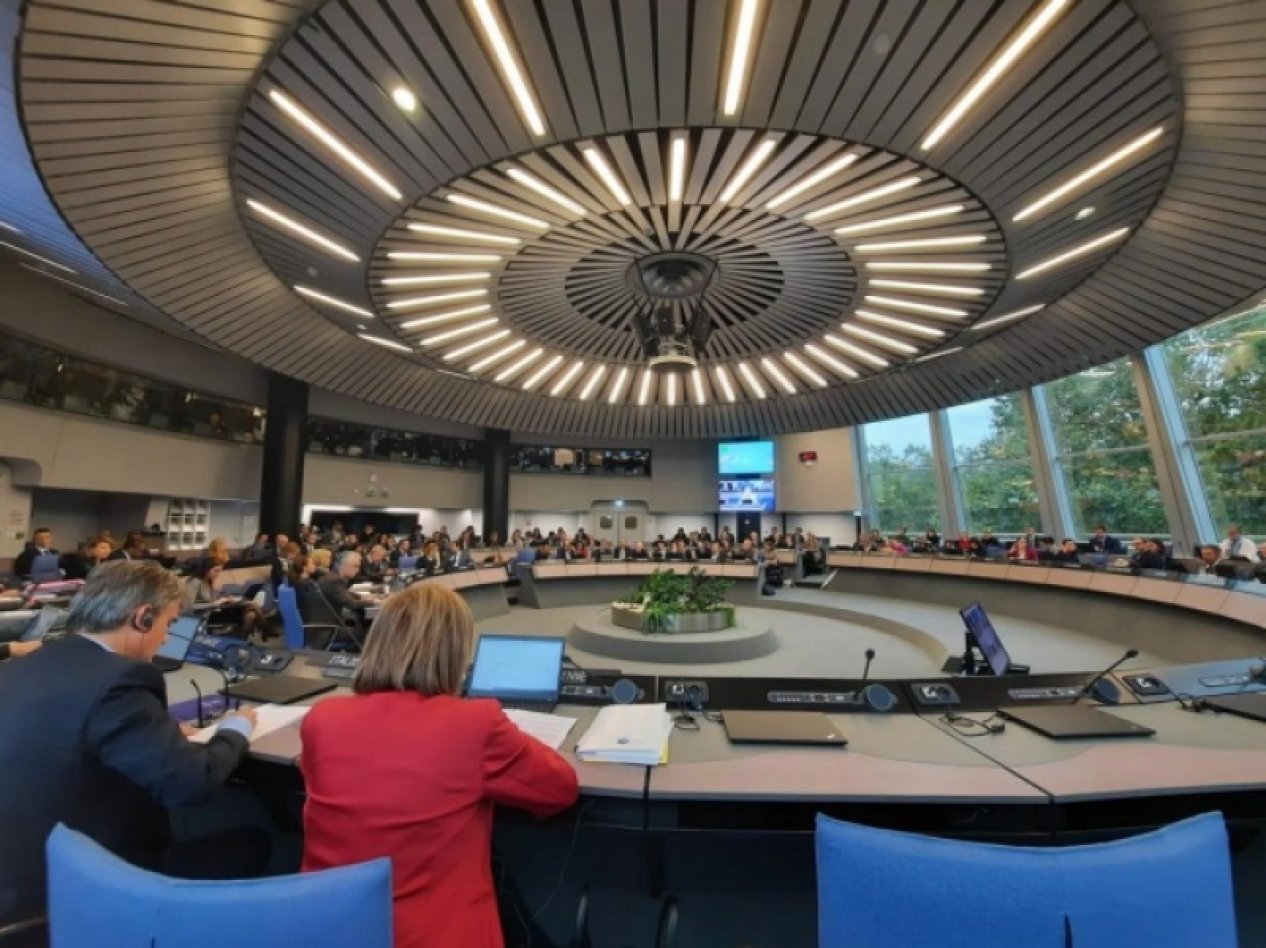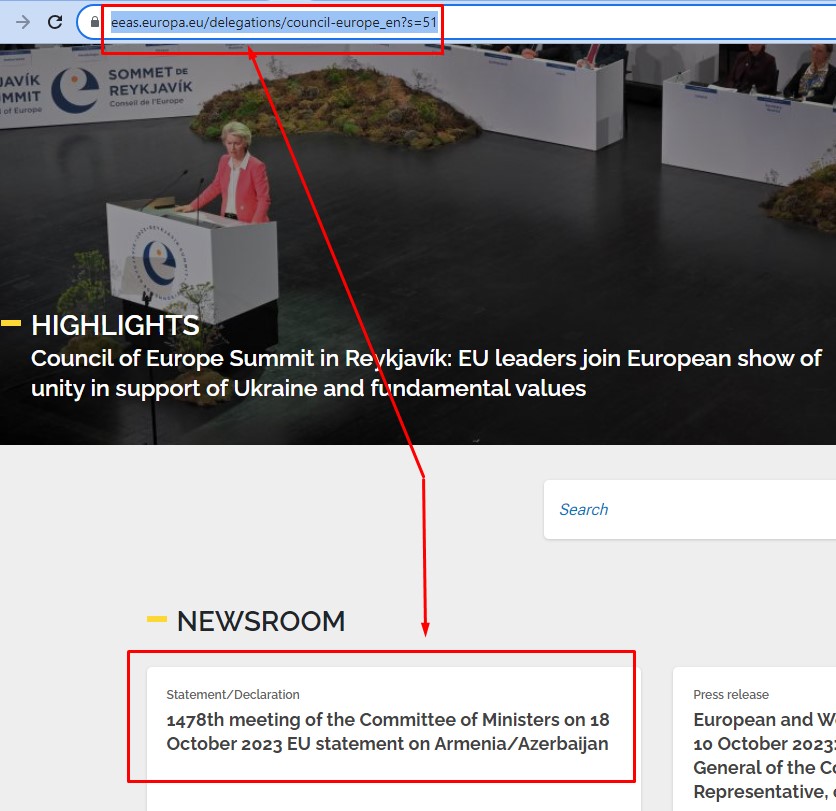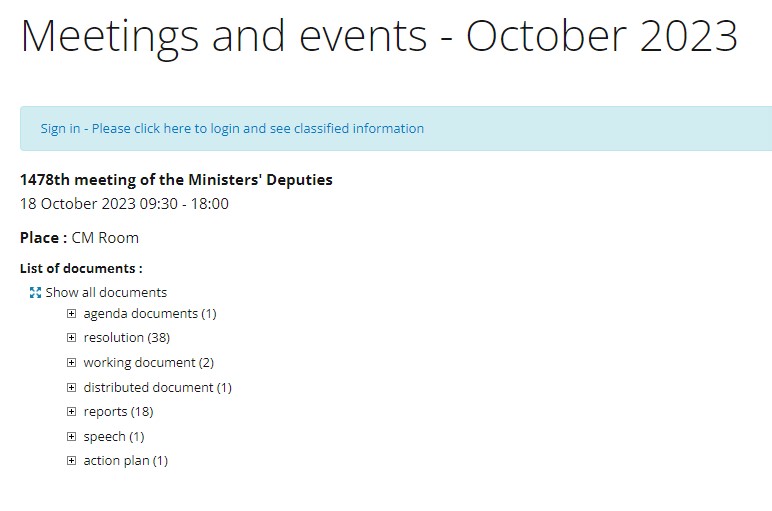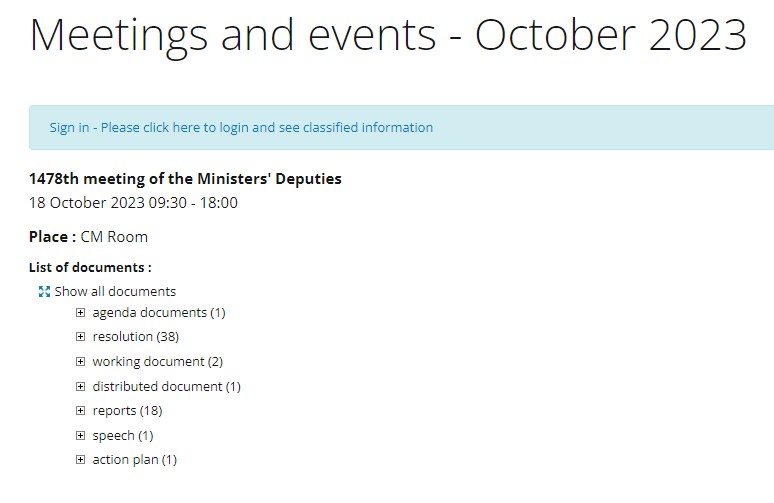
The Committee of Ministers of the Council of Europe and the delegation of the European Union adopted a statement on the Armenia/Azerbaijan conflict at a meeting held in Strasbourg on October 18.
Faktyoxla Lab. has conducted an investigation on the procedure for adoption of the statement and other noteworthy points.
First of all, let's note that this "statement" was not adopted by the "Committee of Ministers of the Council of Europe and the EU delegation", as it was said, but at the meeting of the Committee of Ministers of the Council of Europe and the European Union Delegation to the Council of Europe.
That statement can be found on the website of the Delegation of the European Union to the Council of Europe.

The website that issued the statement is the official page of the European External Action Service (EEAS).
As a result of the research, it became clear that according to the procedures, the time of the next meeting of the Committee of Ministers, the agenda documents, reports and information about the resolutions (not less than two weeks before the meeting day) are posted on the institution's website. The agenda of the last October 18 meeting was added to the website on October 6, 2023.

An important point to be emphasized here is that, in fact, this action plan is intended for the meeting of the deputy ministers, not the Committee of Ministers of the Council of Europe.
If you search in the "agenda documents", "resolution", "working document, "distributed document", "reports", "speech", "action plan" sections of that link, the document “EU statement on Armenia/Azerbaijan" cannot be found.
That is, this issue was not included in the "action plan" of the meeting dated October 18, 2023, not only beforehand, but also in the following days.

So, does the Delegation of the European Union in the Council of Europe have the status of adopting a joint statement with the Committee of Ministers?
The information about the authority of "Representations" is written in the "Procedures and methods of operation" of the institution.
In the "statement", which begins with "The European Union considers that...", the conclusion of the European Union is emphasized four times, and in the end, Albania, Andorra, Bosnia and Herzegovina, Iceland, Liechtenstein, Monaco, Montenegro, North Macedonia, Norway and San Marino also "aligned with" this statement, not "signed" it as claimed by the Armenian media.

Regarding the accession of states, it is clear that none of the mentioned states are members of the European Union. In addition, the Balkan countries - Albania, Bosnia and Herzegovina, Montenegro and North Macedonia signed the European Commission Stabilization and Association Agreement with the European Union. This Agreement forms the basis of relations between the European Union and the Balkan countries for the implementation of the "Stabilization and Association Process". The agreement is adapted to the specific situation of each partner country and promotes the establishment of a free trade area between the EU and the signatory country, as well as common political and economic goals, regional cooperation. In the context of accession to the European Union, this Agreement forms the basis for the implementation of the accession process. That is, the states that signed the agreement unconditionally fulfill the recommendations and calls of the European Union. It turns out that at the meeting of the Committee of Ministers of the Council of Europe, the statement of the representation of the European Union in this body is published, and the countries that are not part of the European Union also align with this "statement" in accordance with the requirements of the Agreement.
In conclusion, regarding the legal status of the "statement" issued jointly by the European Union's representation in the Council of Europe and the Council of Europe's Committee of Ministers: Decisions made in this format are in no way considered decisions of the Committee of Ministers, while statements issued on behalf of the European Union are considered humanitarian in nature. Such statements are non-voting and educational statements (source)
Conclusion:
- The "statement" of the Committee of Ministers of the Council of Europe and the delegation of the European Union on the Armenia/Azerbaijan conflict was disseminated in violation of legal procedures;
- The voiced statement is a statement that has no legal basis, does not require a vote, and is only informative;
- Half of the states that joined the statement signed the Stabilization and Association Agreement with the European Union, according to which the mentioned states had to align with and support all proposals from the EU.




















